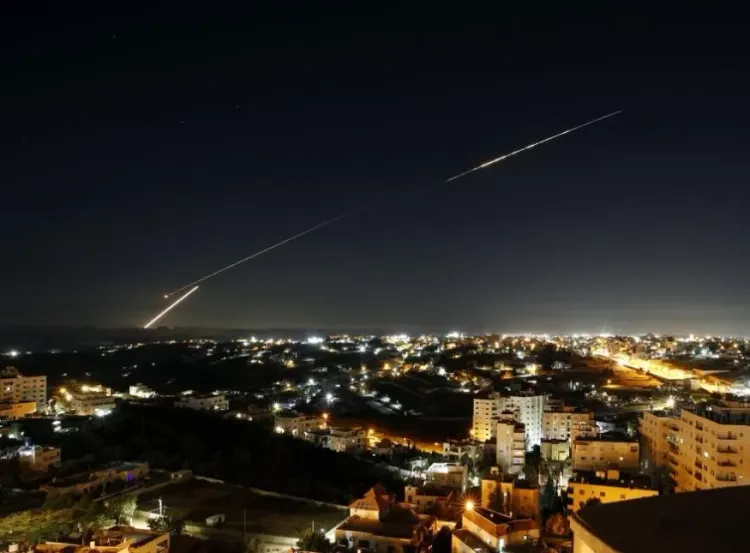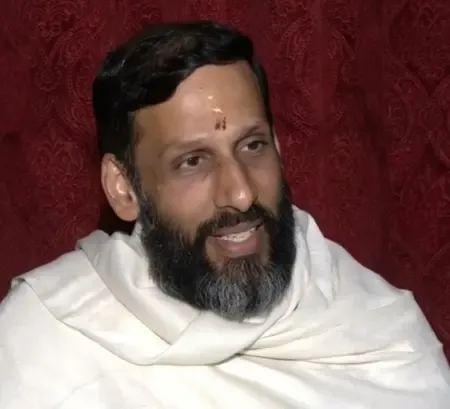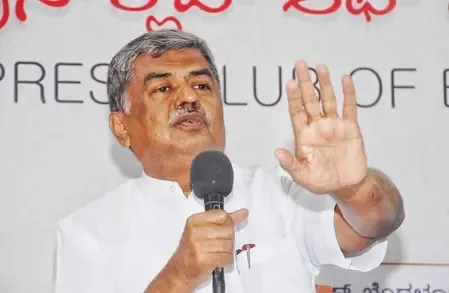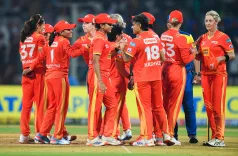Is the Third Eye a Growing Concern in the Middle East?

Synopsis
Key Takeaways
- Iran and Israel's military tensions are escalating.
- The US supports Israel amid concerns over Iran's nuclear program.
- Faith-based ideology complicates the conflict.
- Regional powers like Saudi Arabia are wary of both Iran and Israel.
- Diplomatic solutions are crucial for achieving peace.
New Delhi, July 1 (NationPress) While the geopolitical landscape in the Middle East is primarily characterized by a triangular rivalry involving Iran, Israel, and the Gulf Arab states, particularly Saudi Arabia and the UAE, it is the escalating military tensions between Iran and Israel that are igniting a crisis in the region.
Saudi Arabia and the UAE have long been steadfast allies of the United States, and have even been encouraged by Washington to pursue peace agreements with Israel, known as the Abraham Accords.
The US and Israel share a close alliance, with former President Donald Trump staunchly supporting Israel’s opposition to Iran’s nuclear aspirations. Trump insisted that Iran must commit to the Joint Comprehensive Plan of Action (JCPOA) before any sanctions could be reconsidered.
Despite Iran's assertions that its nuclear program is intended solely for energy production, Israel has consistently rejected this claim.
The JCPOA included stringent monitoring and verification measures, allowing for enhanced access for IAEA inspectors to both information and facilities.
Trump’s administration aimed to apply intense pressure on Iran to compel compliance with US standards.
Bolstered by US backing, Israel initiated an attack on Iran on June 13.
In retaliation, Iran launched a series of hypersonic missile strikes against Israel, with several bypassing Israel's Iron Dome defense system.
On June 21, US forces struck three nuclear facilities in Fordow, Natanz, and Isfahan, claiming to have successfully incapacitated them. This operation, codenamed 'Midnight Hammer', involved coordination between Israeli and US intelligence and deployed seven B2 stealth bombers and 14 bunker-buster bombs against the underground facility at Fordow. Additionally, two dozen cruise missiles were launched at Isfahan from a submarine.
In response to US claims of destruction, Iran acknowledged some damage but contended that the sites had been rendered obsolete and their equipment relocated.
Trump cautioned Iran that future military responses would be significantly more devastating if a nuclear agreement was not reached.
The UN nuclear watchdog reported no indications of nuclear contamination at the targeted sites post-attack.
The Head of the Atomic Energy Organisation of Iran revealed the existence of another uranium enrichment facility at a secure location.
While Iran appears unwilling to relinquish its nuclear development ambitions, Israel is convinced that Tehran aims to produce nuclear weapons using enriched uranium. Currently, both nations are observing an unspoken ceasefire. However, a critical concern for the international community is that the Iran-Israel conflict has evolved into a broader faith-based struggle.
During the heightening tensions, Ayatollah Ali Khamenei described the conflict as a struggle between Islam and Zionism, predicting the ultimate victory of Islam over the Zionist state.
On June 6, he urged Muslim pilgrims to Mecca to communicate with their governments, advocating for the isolation of Israel due to its actions in Gaza.
It is pertinent to note that Shia fundamentalism inherently opposes the US, viewing it as ideologically counter to its values, which prioritize 'poverty' and 'sacrifice'.
Additionally, Sunni extremist groups carry forward the legacy of 19th-century Wahhabi jihad, which was led by the Ulema against perceived Western incursions into Muslim territories.
The US remains the primary adversary for these Islamic radicals, a sentiment that intensified during the 'war on terror', which targeted the Taliban-al-Qaeda alliance in Afghanistan and the rise of ISIS in Iraq and Syria. Evidently, Iran has formed an alliance with a radicalized Hamas, exacerbating the threat to Israel.
Hezbollah, a Shia militant group based in Lebanon, and the Houthis in Yemen (also known as Ansar Allah) serve as Iran’s proxies. However, the Iran-Hamas coalition is particularly significant as it bridges the Shia-Sunni divide, framing the conflict as a unified Islamic front against the Jewish state.
The driving force behind this conflict is rooted in jihad, regarded as an essential duty in Islam, compelling devoted Muslims to fight for the defense of Islam and their community.
What some label as Islamic Terror, which Trump has condemned, is viewed by fundamentalists as a religious obligation, enabling effective indoctrination in the age of social media.
Today, Iran and Israel share an unprecedented level of mutual hostility. Faith-based conflicts are notoriously difficult to resolve, and the US-Israel alliance must brace for a protracted struggle. Iran’s total opposition to the US has naturally nudged it toward closer ties with China and Russia, raising concerns that a deepening divide may rekindle Cold War tensions.
Meanwhile, the Organisation of Islamic Cooperation (OIC) condemned Israel’s aggression in a statement following the Foreign Ministers' meeting of its 57-member bloc in Istanbul on June 22, emphasizing the UN Security Council's role in addressing the grave threats to international peace posed by Israel. Notably, the statement did not refer to the US strikes on Iran's nuclear facilities, although the OIC General Secretariat expressed “deep concern” regarding the US attacks.
The Istanbul gathering resolved to form a Ministerial Contact Group aimed at engaging international and regional stakeholders to halt aggression against Iran.
Prominent OIC member Saudi Arabia is wary of both Iran and Israel's dominance in the Middle East and especially sensitive to radical Islamist factions that criticize the Saudi regime for its alignment with the US. The OIC would likely support a diplomatic initiative between the US and Iran.
India has successfully maintained constructive relationships with Saudi Arabia, Iran, and Israel. It should pursue a three-pronged policy advocating zero tolerance for faith-based terrorism, promoting the democratization of regional regimes to protect minority rights, and fostering peaceful relations among all nations in the region. India is keen to prevent the Iran-Israel conflict from escalating into a global confrontation.
While Israel's instinct to defend itself against a hostile Muslim world is understandable, its military and technological capabilities, combined with support from the democratic world and the US, should make it more open to peace negotiations with its neighbors. Israel must halt the indiscriminate killing of Palestinian civilians, including women and children, while combating Hamas—an action it is justified in pursuing. Collaboration with the democratic world is crucial in seeking a long-term resolution to the Palestinian issue.
In a potential attritional conflict with Iran, Israel may not secure a definitive victory. The most viable path to global peace lies in compelling major powers to facilitate the de-escalation of military confrontations and guide the Middle East toward harmonious coexistence.
(The author is a former Director of the Intelligence Bureau)










